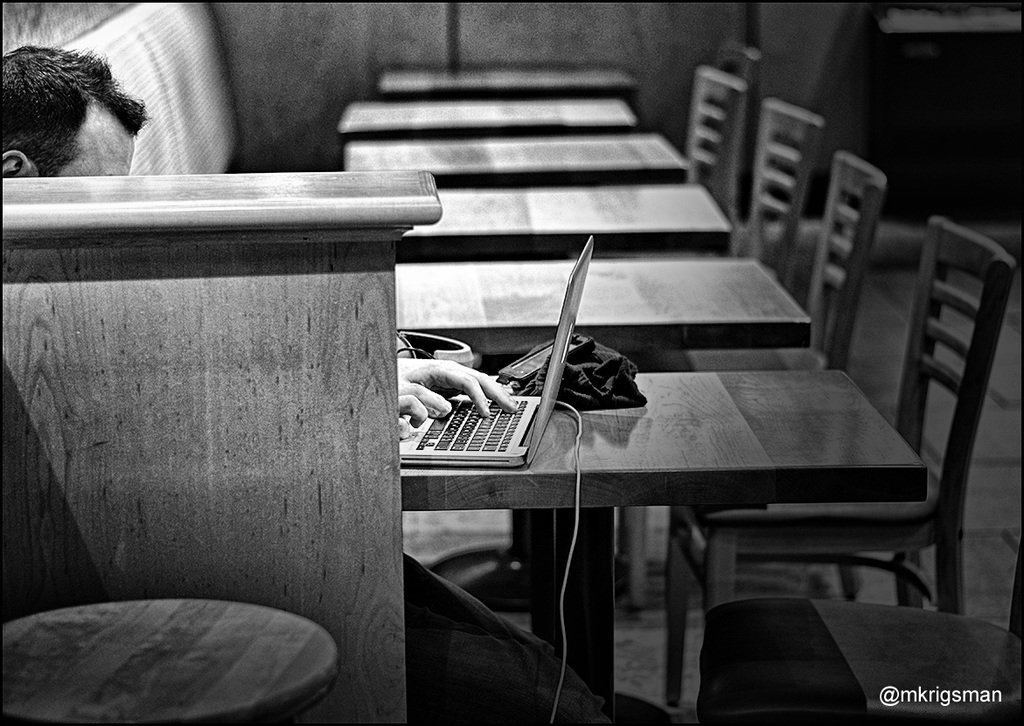6 reasons why a 'four-hour workweek' is on the horizon

Professionals and knowledge workers are working harder than ever, and are likely putting in 50 or more hours a week into their jobs. But this is occurring on their terms, their schedules, and at locations of their choosing.

Social Media Explorer's Nicole Kelly speculates that today's new generation of workforce entrants (you know, the Gen Yers) may yet demand the "four-hour-workweek" approach popularized by Timothy Ferriss in his book of the same title.
Mind you, Kelly is not talking about six and a half days of rest and relaxation -- today's professionals and knowledge workers are busier than ever before. Rather, that four hours is face time at the office, and the rest of the time is spent working from home, on the road, and every else, employing technology to interact, collaborate and access work-related applications and data.
Kelly provides four good reasons why the "four-hour workweek" is imminent for knowledge workers, and I added a couple of my own:
1) On-premises work isn't necessarily productive: Kelly quotes Amber Naslund, co-founder and president of SideraWorks and co-author of The Now Revolution: “The reality of work is that face time is now the exception, not the rule and butts in seats has never been a good indicator of, well, anything useful (productivity, morale, etc). We have to be all over the place for clients anyway, so physical space has literally nothing to do with how well we can perform.” Plus, productivity is bursty -- someone may be slug-like at 2 p.m., but brilliant at 7 p.m.
2) Recruiting and hiring is now global, not local: As C.C. Chapman, author of the recently published book Amazing Things Will Happen put it to Kelly: “As a business owner I don’t ever want to be restricted from hiring the most talented people because of where they live. Technology enables any of us to workshift anywhere we have an Internet connection and I not only embrace that sort of freedom, but I welcome it. Borders should never get in the way of doing business.”
3) No more 9-to-5 scheduling: Kelly expects to see the resurgence of flexible schedules, but to another extreme. "While it won’t work for every position or in every industry, we may start to see more employees demanding to create their own schedules on an ad-hoc basis."
4) We don't have to sit across a table to collaborate: "Sitting across a corporate conference room table to 'collaborate' is so 2000," Kelly says. But some face time is needed as well -- perhaps that's where the four hours comes in. As Chris Brogan, author of The Impact Equation, put it: “There’s still some value to having a central gathering place. For instance, people might have to work on something complex that requires a lot of inter-exchange. Animating a movie comes to mind. Engineering a computer would be difficult to do sprawled out. But a lot of roles and functions don’t need proximity for the most part." Brogan predicts "a huge shift in companies paying an allowance for coworking spaces” to allow for the four hours.
5) Commercial real estate is costly: With all the advantages outlined by Kelly, above, organizations are going to find it increasingly difficult to cost-justify large swaths of office space. Rather, employers may begin assembling their own co-working spaces -- available on an as-needed basis to those who need to meet or work on-site.
6) The tools we work with are our own: Organizations are being swamped by the BYOD -- bring your own device -- trend. Employees increasingly rely on equipment and devices they purchase on their own with their own money -- such as smartphones, and even laptops -- to get their jobs done. Some employers are even encouraging BYOD, recognizing that it saves a lot in IT infrastructure costs and staff time. Professionals and knowledge workers aren't going to turn off their devices at 5 p.m.
(Photo: Michael Krigsman.)
This post was originally published on Smartplanet.com